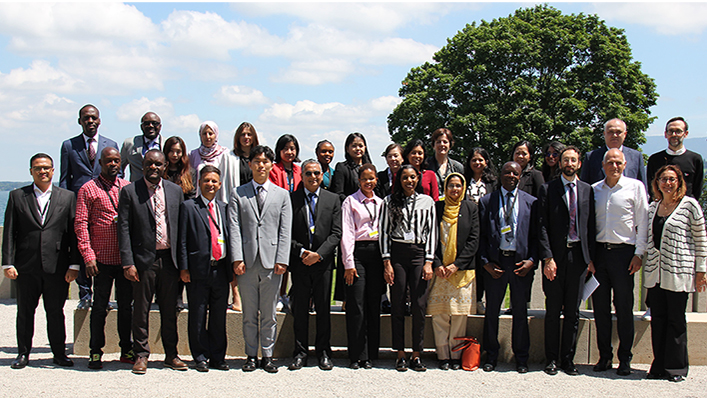
Participants received training on various aspects of trade data analysis, learning how to calculate trade flows and trade policy indicators, and conduct trade policy analysis and simulation.
Hands-on exercises formed a significant part of the programme, enabling participants to use statistical software to construct tariff profiles, build datasets and conduct trade policy analysis. The objective was to deepen the participants’ understanding of the impact of trade policy, with the ultimate aim of supporting more effective participation in trade negotiations.
Opening the training course on 24 June, WTO Deputy Director-General Johanna Hill emphasized the importance of evidence-based analysis to inform policymakers, businesses and the general public on how to address barriers that are disproportionately affecting trade.
In closing the programme, the WTO’s Chief Economist Ralph Ossa stressed that robust policies must be underpinned by sound analysis. He also underlined the importance of bridging the gap between economic theory and on-the-ground policy-making challenges.
Perity Munyao, a participant from Kenya, said: “By delving into the complexities of economic theories and their practical applications, I gained a deeper understanding of how to utilize these models to address various trade matters effectively. The hands-on experience with data analysis has taught me how to interpret economic data more accurately and I am now better positioned to formulate sound trade strategies.”
Another participant, Danandjay Luximon from Mauritius noted: “The course has equipped me with the skills to better formulate and shape Mauritius’ negotiating positions at the bilateral, regional and multilateral levels. I am now able to concretely assess the impact of trade policies on small and vulnerable economies such as Mauritius with the objective of making informed decision-making during trade negotiations.”
Share
Reach us to explore global export and import deals